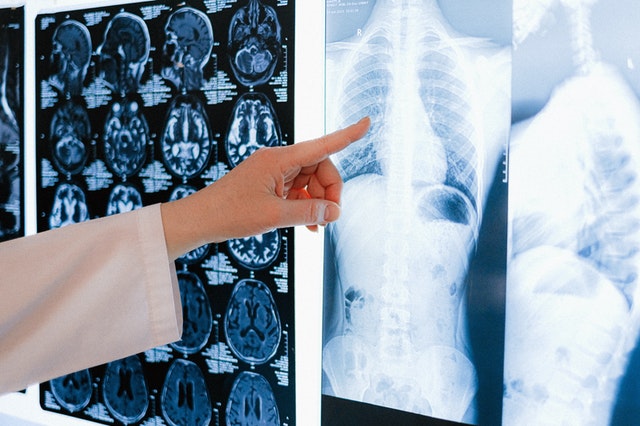"All Disease Begins in the Gut"

These were the words of the Ancient Greek, Hippocrates - a physician of the Age of Pericles (Classical Greece), who was born in 340 BC and lived to 90 years of age. He was considered to be the father of modern medicine and authored over 70 books, and was the first to establish the diagnostic methods of examination used in modern medicine today.
Additionally, he not only invented new medical devices, he also created names for many diseases (e.g. diabetes mellitus). Even, to the point of discovering effective therapies for them. Interestingly, even 2400 years later, his words of wisdom are still proven through the latest research to be true and accurate.
Therefore, taking care of your own personal gut health should become an everyday life priority. In fact, the health status of your gut not only impacts on your overall health and wellbeing; modern day research is also linking it to a wider range of health concerns. These include digestive problems, autoimmune conditions, obesity, depression, and even certain brain conditions and cancers.
The Gut is the Second Brain
Researchers have also discovered that a nervous system in your gut exists, and is known as the 'second brain'. This is known as the gut-brain connection.
Harvard Health, in their blog further described the anatomy of the brain-gut connection by stating "The brain sends signals to the digestive, or gastrointestinal (GI), tract via the sympathetic ('fight or flight') nervous system and the parasympathetic ('rest and digest') nervous system". [1]
And, its this linkage that often explains the gut’s link to anxiety and depression, and neurological conditions like schizophrenia and dementia. In conclusion, the overall wellness of both your body and your brain depends directly on how healthy your gut is.

What Can Damage the Gut Microbiome
Unfortunately, your 'Daily Diet' can contain many commercial or processed foods that include refined carbohydrates; added salt or sugar and harmful additives - which, in turn can have an adverse health effect by reducing bacterial diversity and triggering gut inflammation.
For instance, white bread or rice, ready-made meals, canned foods, commercially packaged snacks, to even low-quality cooking oils can slowly but surely be diminishing or negatively shifting your inner gut healthy microbiome.
'Stress' is also highlighted amongst renowned research studies as affecting your gut. Particularly, if stress is ongoing in nature or its connected to an historical stressful life event. In this instance, Stress inhibits the immune function, and subsequently it can start to diffuse or divert energy from fighting infections and increase inflammation within the body, which is also well noted as a precursor for disease.
One shouldn't ignore the another contributor - this being a 'Lack of Sleep' and many research studies have highlighted that even short-term sleep deprivation can damage the gut microbiome. However, the question beckons, how can you reduce the potential for an unhealthy gut microbiome to develop?
In answer, let me bring back Hippocrates, as he also made a very profound statement, in terms of providing a very effective therapy for the prevention and in many instances a cure for disease. This being...
"Let food be thy medicine and medicine be thy food"
What Foods Improve Gut Health?
There are many things you can do to promote a healthy gut and give your self a better chance of preventing a common disease. Gaining knowledge of what you should focus on to promote a healthier gut, and then sticking to a healthier eating routine is a sensible move.
Prebiotics' is a very good starting point, as these food types are mostly made up of fibres and natural sugars that not only support the good bacteria in the gut, but also assist in development of a diverse community of microbes. For example, these foods fall into the complex carbohydrates category and can include many vegetables and whole grains including onions, garlic, asparagus, spinach, banana and Jerusalem artichoke.
Probiotics' are another sensible inclusion and many of them contain beneficial live bacteria, that will enhance the good bacteria within the gut and assist to fight off any potential bad bacterial strains. For example, good food sources to pursue would be live yoghurt and fermented foods such as sauerkraut, kimchi and miso.
Fibre' can be problematic for many people, mainly due to the fact that they don't consume enough of it each day. Fibre in your daily diet can also help to feed the good gut bacteria, and help to remove the harmful toxins at the same time. Therefore, it’s important to eat fibre-rich foods; preferably multiple times per day.
In this instance, choosing Whole Grains based foods will help to boost the good microbes within the gut. Good sources include oats, quinoa, whole grain rice, brown bread, rye bread, buckwheat and quinoa. Interestingly, Dark Chocolate' (ideally organic and over 70%) is full of fibre and molecules called polyphenols, which assists to fuel the good microbes and are also evident within red grapes, artichoke, green tea and cherries. But, lets not forget the humble Apple'

All these dietary additions cannot only help you increase immunity against disease and reduce inflammation within your body, they also have the added advantage of protecting you against weight gain.
You could even ramp things up a little by adding antibacterial spices' that can help stem the rise of ‘bad’ bacteria in your gut. These may include garlic, ginger, cumin and turmeric which you can easily add to your dishes.

Refs:
Harvard Health Publishing (2019) 'Brain-gut connection explains why integrative treatments can help relieve digestive ailments' Harvard Health Blog - Harvard Medical School. U.S.A. Published April 11, 2019. Article Contributor Dr. Michelle Dossett
Image Credits:
1. Pexels Anna Shvets 2. Pexels Nothing Ahead 3. Pexels

